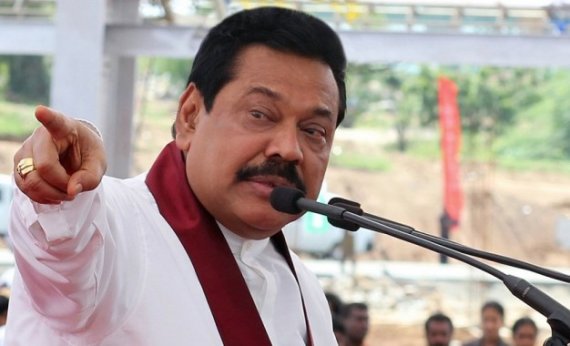
Colombo: The main challenger to Sri Lankan President Mahinda Rajapaksa in the presidential poll, today signed a pact with the opposition parties and civil society groups to scrap the country's “dictatorial” presidential form of government.
Maithripala Sirisena, who was a former health minister and no 2 in the Rajapaksa-government, had defected on November 21 to become the opposition's main candidate in January 8 presidential elections in which Rajapaksa is seeking a record third term.
At a well-attended ceremony held this morning, Sirisena signed the pact with Maduluwawe Sobhitha, the leading Buddhist monk, main opposition leader Ranil Wickremesinghe and leaders of several other political parties. Former Sri Lankan president Chandrika Bandaranaike Kumaratunga was also present.The pact envisages the abolition of the executive presidential form of government and makes way for greater democratization in the island with the annulment of the 18th amendment to the constitution.
The amendment had lifted Rajapaksa's two-term bar to run as the president. The pact also spells out electoral and constitutional reform.
Sirisena was the general secretary of the Sri Lanka Freedom Party (SLFP) who broke ranks with the government to join the opposition movement for greater democracy. Following suit, at least three more Cabinet ministers have defected to opposition ranks.Sirisena is also expected to sign a similar pact with the Buddhist nationalist JHU or the Heritage Party who have also broken ranks with the president.
The JHU triggered the opposition resurgence by urging Rajapaksa to move the 19th amendment to the constitution which aims to make the presidency accountable to Parliament. Sirisen said he has suffered under Rajapksa's rule.
“He projects himself as virtuous, but he leads a dictatorial regime,” Sirisena had said recently.He said his party men were isolated in the United People's Freedom Alliance coalition leading the government.
“We have resolved to abolish the executive presidency within 100 days. I will appeal to the voting public to elect me as the president to do this,” he said.
It was being alleged that Rajapaksa had used his majority in Parliament to eliminate a two-term bar for the presidency and bring the judiciary, police and elections commission under his control.
Rajapaksa has, however, denied the charge that he had been autocratic and blames the opposition groups of siding with foreign elements who seek his ouster.




















